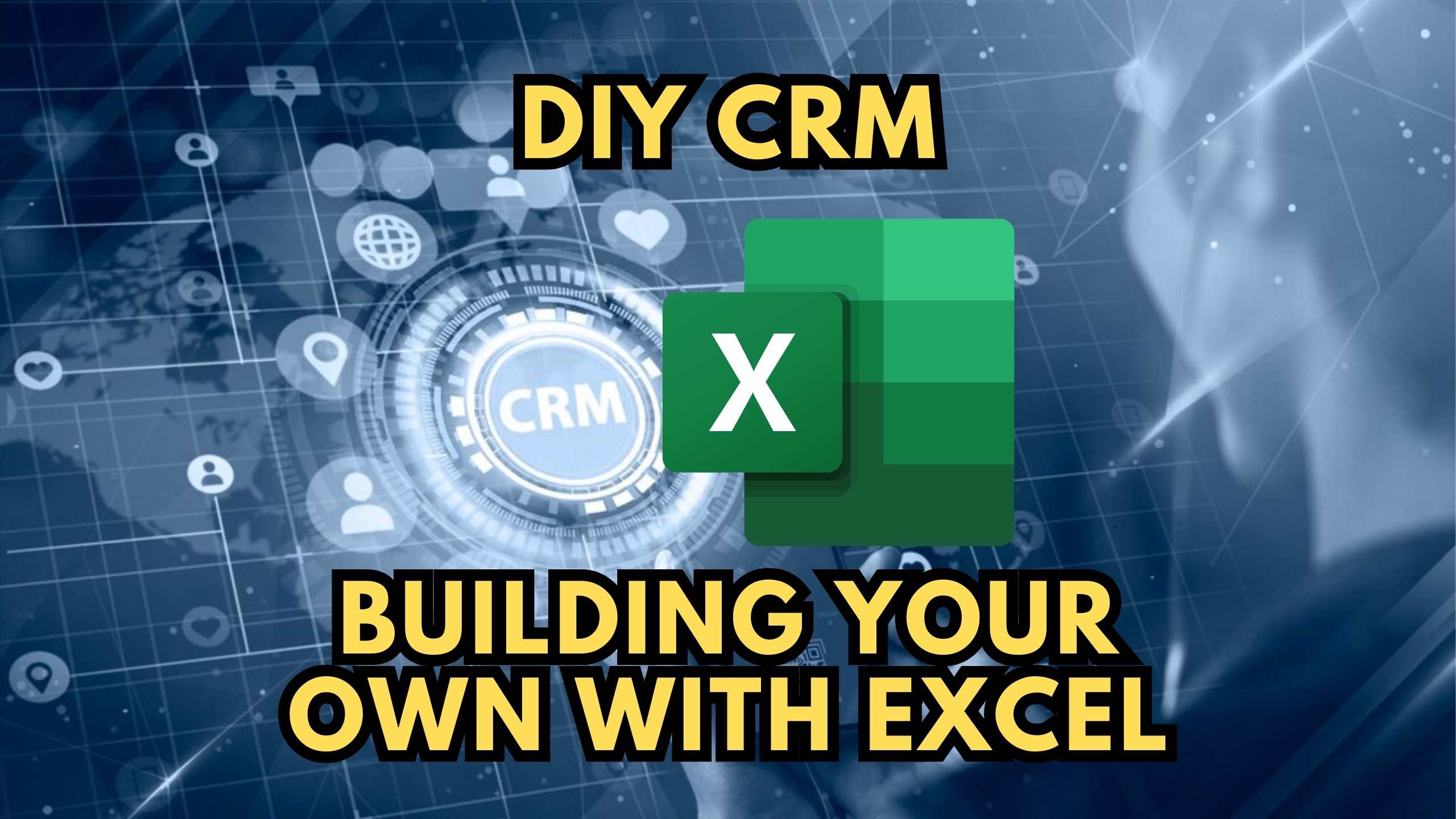DIY CRM: Building Your Own with Excel
- Proposal Software Customer Relationship Management


DIY CRM: Building Your Own with Excel
In the ever-evolving landscape of customer relationship management (CRM), businesses often seek cost-effective solutions. This blog explores the concept of creating a CRM using Excel, delving into the intricacies of this do-it-yourself approach. We’ll provide insights into the advantages and limitations while offering alternatives with relevant SaaS products that cater to diverse CRM needs.
The Appeal of Excel for DIY CRM
Advantages of Excel as a DIY CRM Tool
Building a CRM with Excel presents several advantages, especially for small businesses or individuals with limited budgets. Excel offers a familiar interface, easy customization, and the ability to structure data according to specific business requirements. Many find it a practical solution for basic contact management and task tracking.
Structuring Your CRM Data in Excel
To harness Excel for CRM purposes, users can create sheets for contacts, interactions, and tasks. Utilizing formulas and filters, Excel allows for basic sorting and analysis. This DIY approach is suitable for businesses at the initial stage, focusing on essential data management without the need for an extensive CRM system.
Limitations of DIY Excel CRM
Scalability Challenges
While Excel provides a foundation, it falls short in managing extensive data and scaling with business growth. As the volume of information increases, the limitations of Excel become apparent, leading to potential inefficiencies and data integrity issues.
Lack of Automation and Collaboration
Excel lacks the automation features found in dedicated CRM solutions. The absence of automated workflows and collaborative tools can hinder productivity and lead to manual errors. Dedicated CRM software, like HubSpot, excels in automating processes and enhancing collaboration.
Exploring SaaS CRM Alternatives
1. HubSpot: Elevating CRM Automation
HubSpot offers a comprehensive CRM solution with robust automation features. From contact management to automated email sequences, HubSpot streamlines processes, saving time and ensuring seamless collaboration across teams.
2. Salesforce: Unparalleled Customization
For businesses seeking extensive customization options, Salesforce stands out. With a highly flexible platform, businesses can tailor their CRM system to match unique workflows and requirements, fostering optimal efficiency.
3. Zoho CRM: Balancing Affordability and Features
Zoho CRM strikes a balance between affordability and features. It caters to small and medium-sized businesses, offering a user-friendly interface, automation, and analytics tools to enhance overall CRM capabilities.
4. Pipedrive: Streamlining Sales Processes
Pipedrive focuses on streamlining sales processes. With a visual interface, it helps businesses manage leads and deals efficiently. Pipedrive’s automation features contribute to a more organized and effective sales pipeline.
5. Insightly: Integrating Project Management
Insightly integrates CRM with project management, providing a holistic view of customer interactions. This alignment enhances collaboration and ensures a unified approach to customer relationships.
Conclusion
In conclusion, while Excel offers a basic DIY CRM solution, businesses must weigh its advantages against limitations, particularly concerning scalability and automation. Embracing dedicated CRM solutions, such as HubSpot, Salesforce, Zoho CRM, Pipedrive, or Insightly, provides tailored features that align with business goals and facilitate efficient customer relationship management.
Elevate Your CRM Experience with Subscribed.fyi!
Ready to elevate your CRM experience? Subscribed.fyi offers an all-in-one solution for managing your SaaS stack, providing insights into relevant tools, and helping you unlock exclusive deals. Sign up for free and explore the potential of integrating powerful CRM solutions into your business for enhanced efficiency and growth.
Relevant Links:








